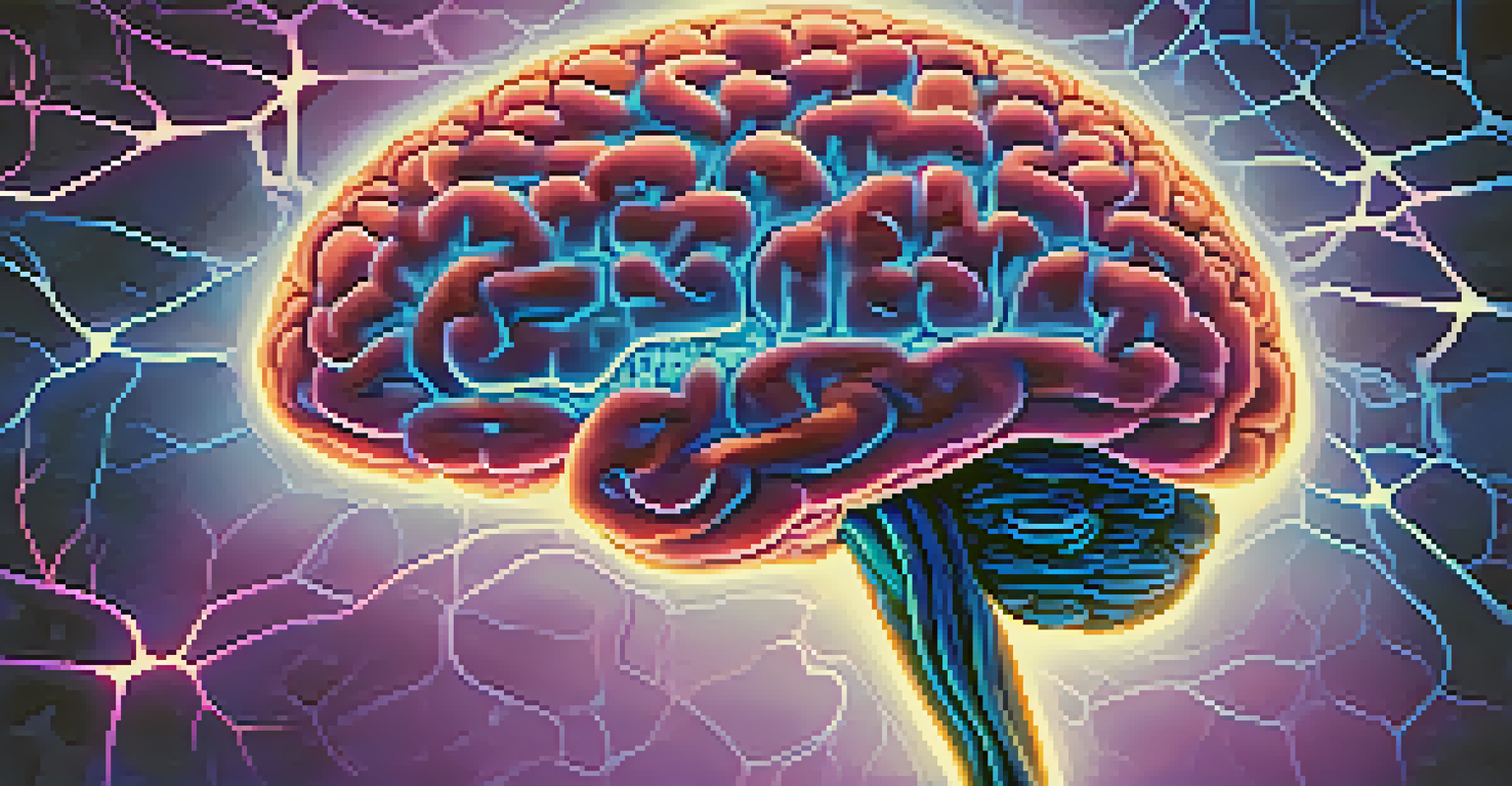The Role of Memory in Learning: Insights from Neuroscience

What is Memory and Why is it Important for Learning?
Memory is the mental process that allows us to encode, store, and retrieve information. It's the foundation of learning, as it helps us retain knowledge and skills over time. Without memory, even the most engaging lessons would slip away, leaving little trace behind.
Memory is the treasure house of the mind wherein the monuments thereof are kept and preserved.
Consider how you learned to ride a bike. The memories formed during practice sessions helped you balance, pedal, and steer, turning a challenging task into second nature. This illustrates that memory isn't just about recalling facts; it's about applying learned experiences in real-life situations.
In essence, memory is the glue that holds our learning experiences together. It transforms fleeting moments into lasting knowledge, enabling us to build upon what we know and continually grow.
The Neuroscience Behind Memory Formation
At the heart of memory formation are neurons, the brain's communication cells. When we learn something new, neurons connect through synapses, creating a network that represents our memories. This process is known as synaptic plasticity, which is essential for learning.

For example, when you study for an exam, your brain strengthens the connections related to that subject. The more you review, the stronger those connections become, making it easier to recall the information later. It's like watering a plant; the more you nurture it, the more it flourishes.
Memory's Role in Learning
Memory is essential for retaining knowledge and skills, transforming fleeting experiences into lasting learning.
Neuroscientific research shows that different types of memories—like short-term and long-term—engage various brain regions. Understanding these mechanisms helps educators develop strategies that enhance memory retention, making learning more effective.
Types of Memory and Their Impact on Learning
Memory can be categorized mainly into three types: sensory memory, short-term memory, and long-term memory. Sensory memory captures fleeting impressions from our environment, while short-term memory holds information temporarily for immediate use. Long-term memory, however, is where knowledge is stored for extended periods.
We do not remember days; we remember moments.
Imagine you're at a party. The sounds, sights, and smells you experience are retained in sensory memory, but only a few details might make it to your short-term memory. If you engage in conversations about the event later, those important moments might transition into long-term memory.
Each type of memory plays a unique role in the learning process, influencing how we absorb and retain information. By understanding these distinctions, learners can tailor their study methods to enhance memory retention.
The Role of Emotions in Memory and Learning
Emotions significantly influence how we remember information. When a particular experience evokes strong feelings, it tends to be remembered more vividly. This is because emotional events trigger the release of neurotransmitters, which enhance memory encoding.
For instance, think back to a time you received an award or celebrated a significant achievement. The joy and excitement associated with that memory likely make it stand out more than a mundane day. This emotional connection reinforces our memories, making them easier to recall.
Emotions Enhance Memory Recall
Emotional experiences create stronger memories, making it easier to remember significant events.
In educational settings, incorporating emotional elements can foster deeper learning. By creating an engaging and emotionally charged atmosphere, educators can help students form stronger, more lasting memories.
Strategies to Enhance Memory and Learning
Several effective strategies can boost memory retention and learning. Techniques such as spaced repetition, where information is reviewed at intervals, are proven to enhance long-term retention. This method capitalizes on the brain's natural forgetting curve, ensuring that information is revisited before it's forgotten.
Another powerful tool is the use of mnemonic devices, which are memory aids that help simplify complex information. For example, acronyms or visual imagery can transform lists of items into memorable cues, making recall easier.
Incorporating active learning techniques, like teaching others or engaging in discussions, can also solidify knowledge. The more actively involved you are in processing information, the stronger the connections in your brain become.
The Impact of Sleep on Memory and Learning
Sleep plays a critical role in memory consolidation, the process where short-term memories are transformed into long-term ones. During sleep, the brain replays and strengthens these memories, making it essential for effective learning.
Picture this: after a long day of studying, a good night's sleep allows your brain to organize and store all that new information. Without adequate rest, your ability to recall what you've learned diminishes, similar to trying to fill a jar that’s already overflowing.
Sleep Aids Memory Consolidation
Adequate sleep is crucial for transforming short-term memories into long-term knowledge.
Prioritizing sleep, especially after learning sessions, can significantly enhance memory retention. Establishing a consistent sleep routine not only benefits your health but also bolsters your learning capabilities.
The Future of Memory Research and Learning
As neuroscience continues to evolve, so does our understanding of memory and learning. Ongoing research explores innovative ways to improve memory retention and cognitive function, providing valuable insights for educators and learners alike.
For instance, advancements in neurotechnology and brain imaging techniques allow scientists to observe memory processes in real-time. This knowledge could lead to the development of targeted strategies that cater to individual learning styles and memory capabilities.

Ultimately, harnessing these insights can revolutionize educational approaches, making learning more effective and personalized. By staying informed about the latest findings, we can better equip ourselves and future generations for success.